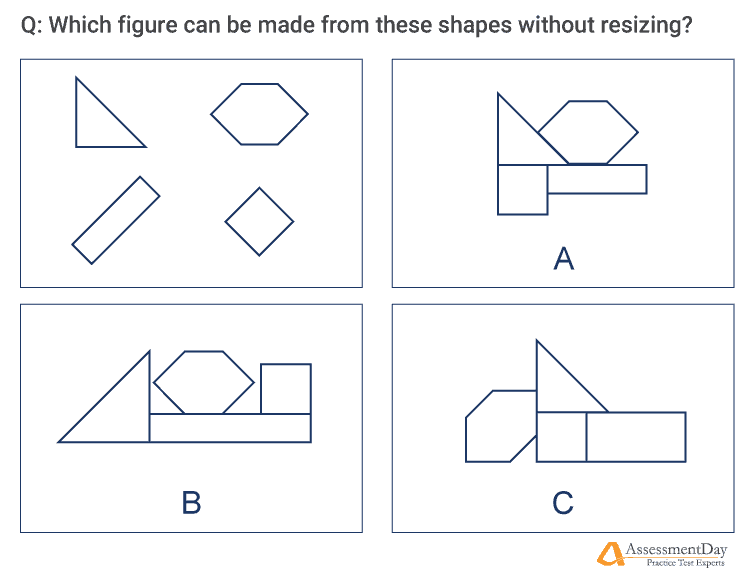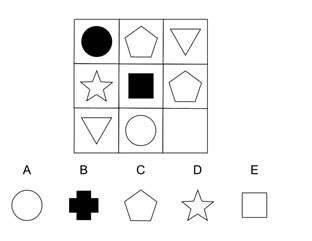Have you ever felt like your mind was foggy, struggling to remember simple things or follow a conversation? As we age, or even amidst the whirlwind of daily life, our cognitive abilities can sometimes falter. But what if we told you that understanding your cognitive strengths and weaknesses could be the key to unlocking your full mental potential? This article delves into the world of cognitive test questions and answers PDFs, providing a comprehensive guide that empowers you to assess your cognitive health and boost your brainpower.

Image: toggl.com
Cognitive tests, in essence, are designed to measure different aspects of our mental capabilities, such as memory, attention, reasoning, problem-solving, and language skills. While these tests are commonly used in academic and clinical settings, they can be equally valuable for individuals seeking personal growth and self-improvement. By understanding how you perform on these tests, you gain a deeper insight into your cognitive profile, enabling you to identify areas that need strengthening and celebrate your inherent strengths.
Unraveling the World of Cognitive Tests
Cognitive tests come in a variety of formats, ranging from simple quizzes to sophisticated assessments administered by trained professionals. The questions within these tests can vary greatly, but they all share a common goal – to gauge your cognitive abilities in a standardized manner. Here’s a glimpse into some of the most common types of cognitive test questions you might encounter:
Verbal Fluency and Vocabulary
Example Question:
- List as many words as you can that start with the letter “S” in one minute.
- Define the word “serendipity.”
These questions assess your ability to retrieve and manipulate language, demonstrating your vocabulary richness and verbal fluency.
Memory and Recall
Example Question:
- Study this list of ten words for one minute. After one minute, write down as many words as you can remember in any order.
Memory tests evaluate your short-term and long-term memory capacity.

Image: colorsheetskidsb.blogspot.com
Attention and Concentration
Example Question:
- Look at this series of numbers: 1, 4, 7, 10, 13, 16. What is the next number in the sequence?
These questions gauge your ability to focus and selectively attend to information, filtering out distractions.
Reasoning and Problem Solving
Example Question:
- If all cats are mammals, and all mammals are animals, then what can we conclude about cats?
Reasoning and problem-solving tests require you to analyze information, draw logical inferences, and apply conceptual understanding to solve challenges.
Spatial Awareness and Visual Processing
Example Question:
- Imagine folding this piece of paper in half. What will the final shape look like after you cut out this portion?
Visual processing tests assess your ability to mentally manipulate objects and interpret visual information.
Executive Functioning
Example Question:
- You have to complete Task A, B, and C. Task B requires the results of Task A, and Task C requires the results of Task B. In what order should you complete the tasks?
Executive functioning tests evaluate your ability to plan, organize, and manage your thoughts and actions.
Finding the Right Cognitive Test
While countless cognitive tests are available online, it’s crucial to approach them with a critical eye. Not all tests are created equal, and some may employ questionable methodologies or lack scientific validity. When choosing a cognitive test, consider the following factors:
- Purpose: What is your primary goal? Are you seeking a personal assessment, or is it for a specific reason, such as school admissions or clinical evaluation?
- Source: Ensure the test is developed and validated by credible institutions, universities, or organizations known for their research and expertise in cognitive testing.
- Privacy: Read the test’s privacy policy carefully and be sure you are comfortable with how your data will be used.
- Feedback: Does the test offer detailed feedback and explanations of your results?
The Power of Cognitive Test PDFs
PDFs, often associated with printable documents, play a vital role in the realm of cognitive tests. Here’s why they are such a valuable resource:
- Accessibility: PDFs offer an easy and convenient way to access cognitive tests. You can download them readily and complete them at your own pace.
- Portability: As digital documents, PDFs are easily sharable and can be accessed on various devices, from computers to tablets to mobile phones. This makes cognitive assessment a more accessible option for individuals on the go.
- Print-Friendly: PDFs are ideally suited for printing and physical completion, allowing for a tangible experience that some individuals may find more suitable.
- Customization: Some PDFs can be customized to fit different age groups, cognitive abilities, or specific testing needs.
Utilizing Cognitive Test Results to Enhance Your Life
Once you have completed a cognitive test, the real journey begins – applying the insights gained to improve your cognitive skills. Here are some practical strategies:
- Identify Areas for Improvement: If your test results reveal a weakness in a specific cognitive domain, such as memory, consider implementing memory-boosting techniques like mnemonic devices, spaced repetition, or mind mapping.
- Mindfulness and Focus: Practice mindfulness and attention exercises to strengthen your concentration. Techniques like meditation, yoga, or simply taking breaks during work or study can be incredibly beneficial.
- Brain Games and Puzzles: Challenge yourself with brain games, crosswords, Sudoku, or other engaging activities that stimulate your cognitive functions.
- Physical Activity and Nutrition: Regular physical activity, especially aerobic exercise, has been shown to enhance cognitive function. Pay attention to your diet, ensuring you consume foods rich in antioxidants and nutrients essential for brain health.
- Social Interaction and Learning: Engage in activities that involve social interaction, such as conversing with friends and family, playing board games, or joining a community group. Continuous learning, whether through reading, taking courses, or pursuing new hobbies, can help maintain cognitive flexibility and prevent mental decline.
Cognitive Test Questions And Answers Pdf
Empowering Your Cognitive Potential
While cognitive tests can provide a valuable snapshot of your mental abilities, it’s essential to remember that they are just one piece of the puzzle. True cognitive health goes beyond scores and assessments; it’s about embracing a holistic approach that incorporates mindful living, mental stimulation, and a commitment to lifelong learning. By understanding your cognitive profile, implementing targeted strategies, and nurturing a healthy lifestyle, you can unlock your full cognitive potential and experience a sharper, more fulfilling life.






